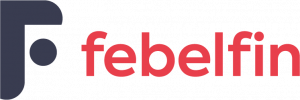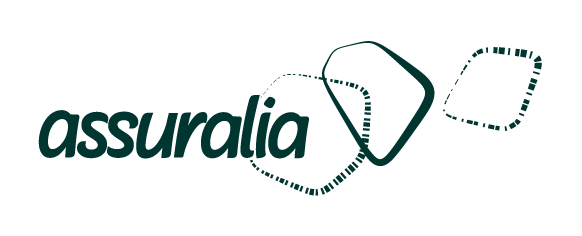09 September, 2024
#53 en #54: Portret van twee vrouwen in de financiële sector: Elvina Garayeva & Noémie Renier
- Can you shortly present your role as today in the organisation (in 1 sentence)?
Elvina Garayeva (EG): I have the privilege to oversee the investment activities of Incofin in 14 countries and over 35 financial institutions, as Debt Director for Eastern Europe and Central Asia.
Noémie Renier (NR): I lead Incofin’s global debt investment activities, focusing on inclusive financial institutions and sustainable agricultural SMEs in emerging markets.
- What brought you to finance ?
[EG] Finance has always attracted me as a dynamic, forward-looking industry with a significant impact on economic development and potential for career building. After obtaining a Master's degree in Bank Management and International Finance from the University of Nice-Sophia Antipolis, I have gained diverse experience in various roles within banks, audit firms, and consulting companies in Belgium and abroad. For the past eight years, my career has been dedicated to fostering financial inclusion in developing countries across Eastern Europe and Central Asia.
[NR]: After graduating from Solvay Business School, it was quite natural to start my career in the banking sector which offered a wide variety of opportunities for learning and working with people with various backgrounds. Using finance as a “force of good” to solve social challenges and drive sustainable impact has been and remains a key driver in my professional path.
What did you learn recently regarding gender equality ?
[EG] Despite significant progress in recent years, considerable gaps and challenges still need to be addressed to achieve gender parity in the financial sector. These gaps are particularly pronounced in the region I currently oversee. Gender equality in finance is a complex, multi-dimensional issue, deeply embedded in local traditions, regulations, and societal norms, and there is no one-size-fits-all solution. Addressing this issue requires intentionality and active involvement and advocacy of various stakeholders.
[NR]: There exists indeed no unique shape of gender equality. At Incofin, we are working with gender-smart financial institutions globally, bringing different challenges and opportunities from Bolivia to Pakistan and from Kenya to Tajikistan. In our work, it is critical to engage and understand how cultural norms and values create barriers to gender equity, and work with those norms to make financial inclusion relevant for women. Strong, “feminist” leadership can be very powerful in reinforcing intentionality and achieving sustainable progress.
Can you share any specific projects or initiatives you're currently involved in that promote gender equality?
[EG] Currently, I'm deeply engaged in planning our investments for the Global Gender-Smart Fund, which aims to promote financial inclusion for women. This initiative empowers financial institutions to adopt gender-smart practices, enhancing leadership development, service quality, and outreach. Each investment is guided by a gender action plan with measurable targets, ensuring substantial impact on closing the $1.7 trillion gender gap. I'm proud that Incofin is a pivotal partner in this transformative effort, working alongside esteemed organizations and stakeholders committed to advancing gender equity in finance.
[NR] Yes, the Global Gender-Smart Fund is one of the most exciting projects we are working on. It is set to become the world’s largest gender-lens investment fund. We believe in challenging the status-quo, so we are doing everything we can to improve access to essential financial services for women, to support women entrepreneurs, and to improve the gender balance in the companies we invest in.
- What was one of the decisions that had the most impact on you or your career?
[EG] The decisions to leave my home country to pursue my education and career in Europe had a major impact in shaping my personal and professional development, ultimately bringing me to where I am today.
[NR] The decision to leave mainstream finance for impact finance has led me towards a transformative journey. Getting exposure to emerging markets through voluntary work motivated me to conduct a Complementary Masters in Microfinance at Solvay, which led me then to spend a few months with microfinance institutions in India. When I returned, I decided to make a career shift towards Impact Finance and was very grateful to join Incofin.
- What would you tell your younger self ?
[EG] You are whole and unique as you are, and your own internal resources are sufficient to reach your goals. Work hard, and act with the best of your intentions and capacity. External validations aren’t necessary, don’t be afraid.
[NR] If the rules of the game do not make sense, it doesn’t mean that you do not fit in, this may mean that the playbook needs to be revised. Innovation happens when we challenge the status quo, and your creativity is your ally. Don’t be afraid to speak up and create your own path. This is “daring leadership”, and this is how you will make a difference for a more sustainable world.
- Any message to share with female students interested in finance, or with young women starting their career?
[EG] Finance is a wonderful, high-potential field. Don’t hesitate to try various areas of finance to find out what your true passion is. Make sure to stay true to your core values and don’t be afraid of failures - those are the best teachers! Be passionate, hardworking, visible and vocal and you will make the difference. Sustainability in everything we do is key.
[NR] The financial sector offers various opportunities. There exists no “one” single career path, and there are many ways to drive sustainable impact. Nurture your authenticity and don’t be afraid to build a career that resonates with your values and contributes to your own work-life balance. I am convinced that achieving sustainable work-life balance is a collective responsibility that will ultimately benefit all genders.



